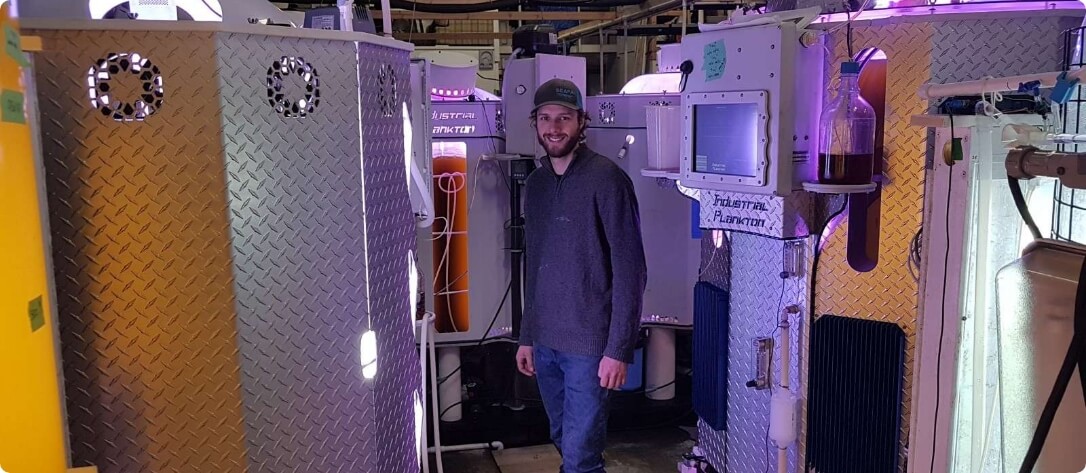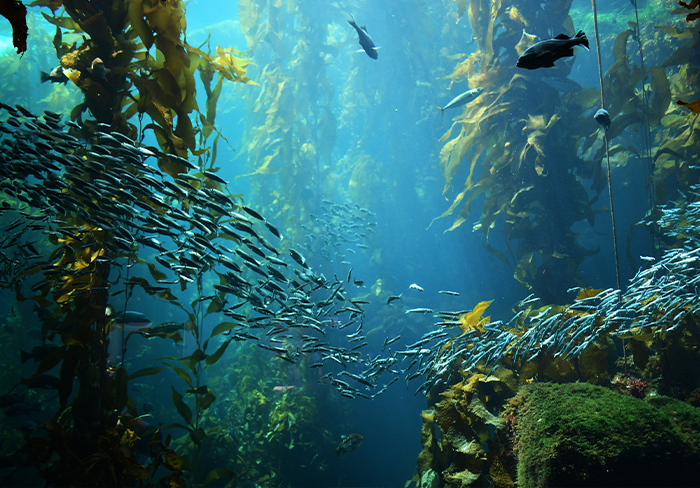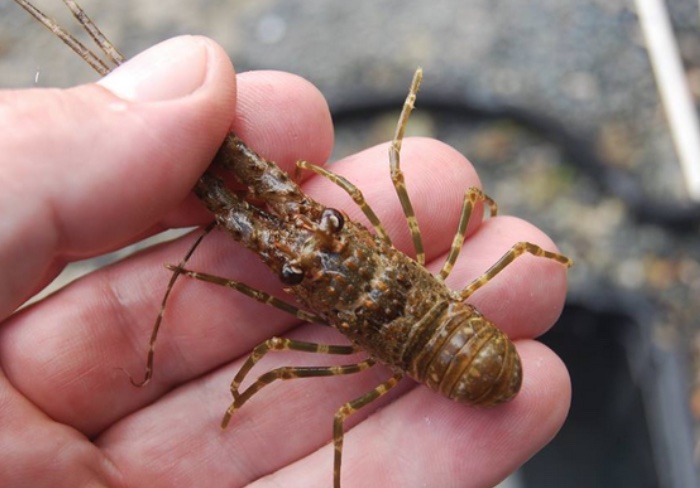
Aquaculture jobs aren’t just for those with a degree in marine biology. I am a licensed investment manager with no formal Marine Biology qualifications, and I have been happily working in the industry for 20 years now.
A job in aquaculture is enjoyable, fulfilling, and part of the blue economy, meaning that you are directly contributing towards a net zero future.
You don’t need experience in the industry either, in fact, most people come in fresh because aquaculture is still a new industry. All you need is experience in a complementary industry and the drive to work towards a sustainable future.
8 Jobs in Aquaculture
Head of Algae Production
Most seafood, including oysters, eat algae. It doesn’t naturally occur in tanks on-land, so it has to be made.
There are 7 main types of algae, each of which are produced in different ways. Making algae is a full-time job that is suitable for anyone who has a background in biology or technology.

Feed Technicians
Feed technicians are responsible for feeding the fish and maximising the FCR (food conversion rate). Additionally, they are responsible for preparing food because there a very few commercially available pelletised diets.
They then feed the fish and monitor the feed response and fish behaviour. As per this analysis, they adjust feed rates, feed quantities and meal profiles.
This is a brilliant role for anyone who has experience in food science.
Sterilization and Cleaning Job
In a hatchery, you have to create a pristine environment for the animals to survive and thrive. The tanks and all the equipment must be both pathogen and bacteria free. A cleaner who maintains these high standards is essential for any aquaculture business. This role is ideal for anyone who has a meticulous attention to detail and wants to work in a green business.
Data Collection Specialist
Aquaculture can be a really profitable industry as long as each element in the business is perfectly balanced. A data collection specialist’s job is to make this happen. They monitor the growth rates, the overall health of the stock, the levels of different elements in the water, and many other things.
This is the perfect role for anyone who is mathematically minded and who loves a challenge.
Data Analyst
Successful aquaculture is a formula of inputs that finds the sweet spot of profitable production. You may be spending too much money on any number of things, but you will not know unless you analyse your data.
A data analyst will look at water quality, growth rates, oxygen levels, and FCR. They will constantly analyse data to check the business is hitting key milestones.
In a smaller business, this role will probably be filled by the same person who collects the data.
This job would be great for someone who has experience in data analysis and believes there is always a better way to do things.
Aquaculture Plumber
Most on-land aquaculture relies on RAS (Re-circulatory Aquaculture System). They are a series of pipes and systems which recycle, filter, and reuse water. They function in much the same way as domestic plumbing, just on a much larger scale.
In big aquaculture companies, plumbing is a full-time job. Pipes leak, elements need replacing, and everything needs maintaining.
This is a great job for anyone who has experience in plumbing and wants a challenge.
Aquaculture Electrician
Every pump runs on electricity. When these pumps go wrong, there is a short time frame in which they can be fixed before the fish are negatively affected. And they go wrong often because water and electricity are a horrible combination.
This is a full-time maintenance role in mid-sized aquaculture businesses, and a contracted role in small-aquaculture businesses.
This role is suitable for anyone with a degree in, or experience of being an electrician. You don’t need specific experience in aquaculture; you can learn on the job.
Head of Sales
The responsibilities in this job depend entirely on the size of the facility.
Large aquaculture facilities normally sell whole species. So here, this role would involve overall management of sales, including transportation customer relations.
Small facilities sell their products in much smaller quantities, so the only way they can make money is by adding value. For example, a small salmon farm may sell smoked salmon or salmon skin watch straps, both of which are worth more than the original fish.
This is a great opportunity for anyone with a growth mindset. You are provided with a product and tasked with making as much profit from it as possible.
Why You Should Work in Aquaculture
As you can see, there are a wide variety of jobs available within the aquaculture industry that are suitable for people with all types of knowledge and experience. But, why aquaculture?
Aquaculture is part of the blue economy. It is profitable and benefits the environment. If you want a fulfilling job where you are really making a positive environmental difference, then there is no better sector to work in.

 Giles Cadman
Giles Cadman 

